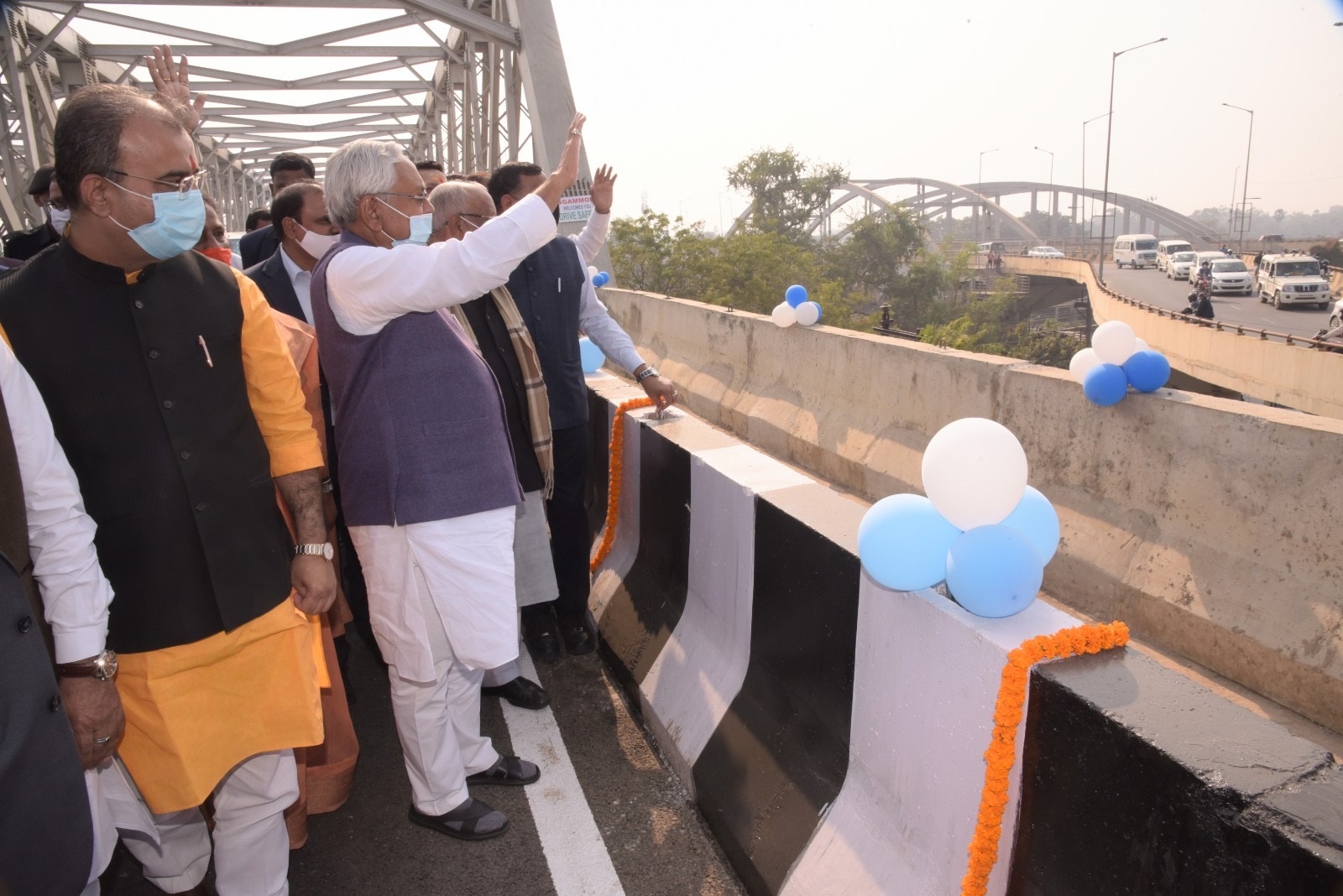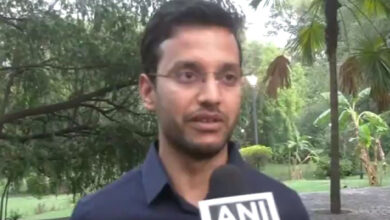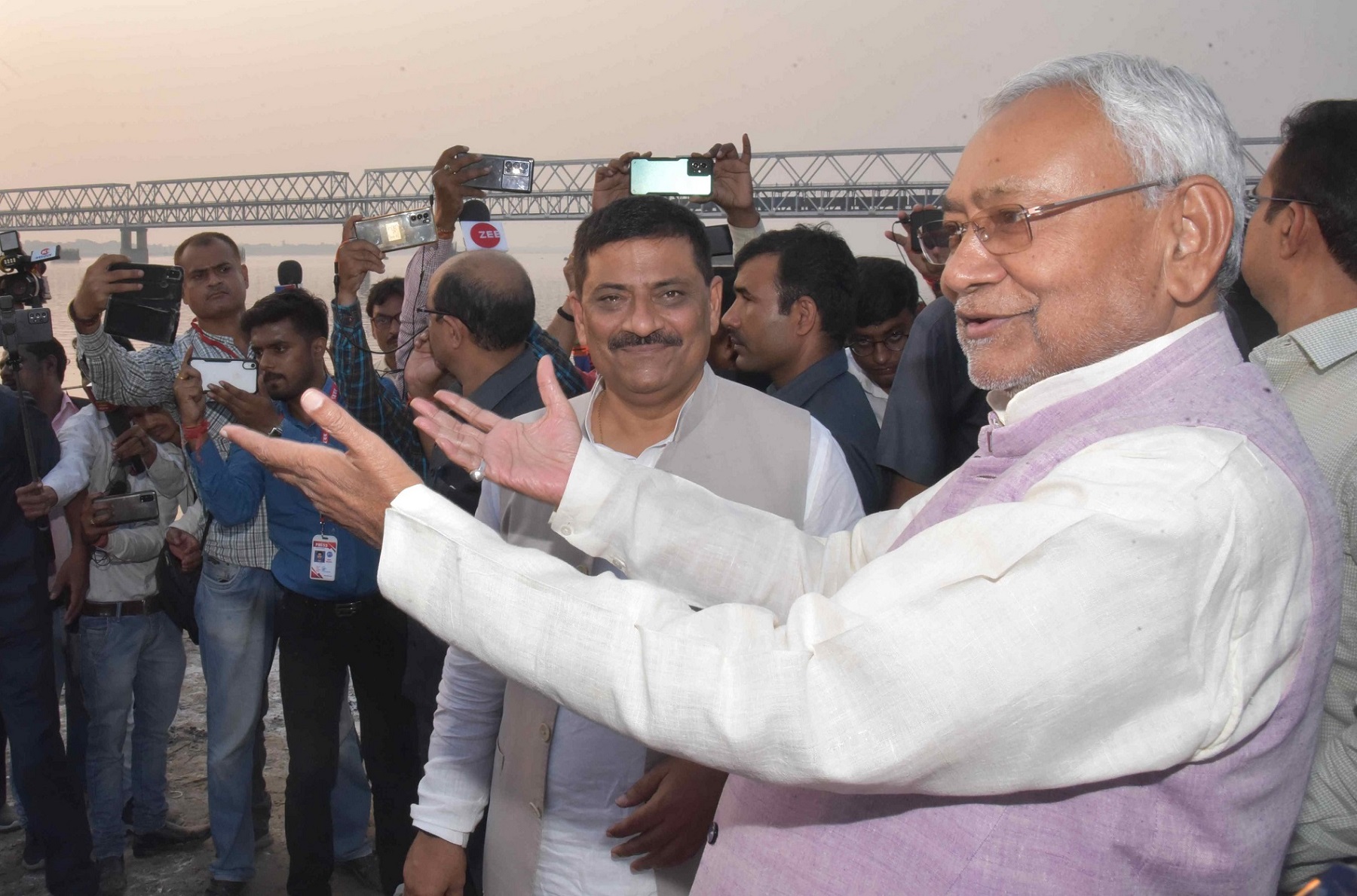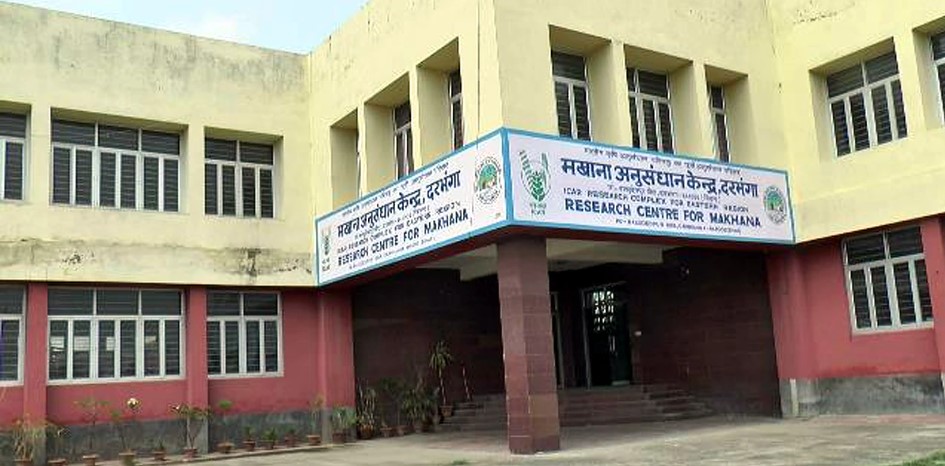Bihar Among the Top 4 States in Providing Tap Water to Rural Households

Five years ago, less than two per cent of the rural households in Bihar had tap water connections, making the state among the bottom five in terms of providing safe drinking water to its citizen. Now 87 per cent of the rural households in the state have tap water connection, thanks to Har Ghar Nal Ka Jal scheme implemented as part of Chief Minister Nitish Kumar’s Saat Nischay (seven resolves).
Bihar has achieved remarkable progress in providing tap water connections to rural households. As per the data available with Jal Jeevan Mission of the Government of India, 86.96 per cent of the rural households in Bihar have tap water connections. Only three other states have higher proportion of rural households with tap water connections. These are: Goa (100 per cent ), Telangana (100 per cent) and Haryana (99.24 per cent).
According to Sanjay Kumar Jha, Bihar’s Minister for Water Resources, 162.92 lakh rural households in Bihar have tap water connection. Out of these 152.16 lakh have got the tap water connection under Har Ghar Nal Ka Jal scheme. 8.44 lakh rural households have been provided the connection under Jal Jeevan Mission and 2.32 lakh have got the connections under National Rural Drinking Water Programme (NRDWP).
According to Sanjay Kumar Jha, Bihar’s Minister for Water Resources, 162.92 lakh rural households in Bihar have tap water connection. Out of these 152.16 lakh have got the tap water connection under Har Ghar Nal Ka Jal scheme. 8.44 lakh rural households have been provided the connection under Jal Jeevan Mission and 2.32 lakh have got the connections under National Rural Drinking Water Programme (NRDWP).
Har Ghar Nal Ka Jal scheme is one of the seven focus areas of Bihar’s development outlined by Nitish Kumar in the run up to the 2015 state assembly election. The implementation of the scheme started in 2016.
During the 2015 Assembly election campaign, Nitish Kumar had announced ‘Saat Nischay’ scheme for Bihar’s development. In 2015 Nitish Kumar was a leader of Grand Alliance that included JD(U), RJD and Congress. The seven resolves included providing electricity connection to every village, providing piped water supply to every household, road and drainage in urban areas and making youth self-reliant through education, skill development and education loans.
During 2020 assembly election Kumar announced sequel to his seven resolves scheme called ‘Saat Nischay Part-2’. The targets and allocation for most of the schemes have been increased.
Other two schemes under which tap water connections have been provided to rural households in Bihar are Jal Jeevan Mission and National Rural Drinking Water Programme (NRDWP). While Har Ghar Nal Ka Jal is conceived, implemented and funded by Bihar government, Jal Jeevan Mission and National Rural Drinking Water Programme (NRDWP) are central government sponsored schemes. National Rural Drinking Water Programme (NRDWP) was launched in 2009 by Manmohan Singh-led UPA government. Jal Jeevan Mission was launched by Narendra Modi government in 2019. Modi announced the Jal Jeevan Mission scheme on 15th August 2019 setting a target to provide tap water connection to every rural household by 2024.
In his address to the Nation from the Red Fort on 75th Independence Day on 15th August 2021 Prime Minister Narendra Modi announced that over 4.5 crore families have been provided tap water connection under the Jal Jeevan Mission in the past two years. “Today, our country is working with speed on the Har Ghar Jal Mission. I am happy that in just two years of the Jal Jeevan Mission, more than four and a half crore families have started getting water from taps. They have started getting water from pipes,” Modi said.
“Today, our country is working with speed on the Har Ghar Jal Mission. I am happy that in just two years of the Jal Jeevan Mission, more than four and a half crore families have started getting water from taps. They have started getting water from pipes,”
Prime Minister Narendra Modi
As per the Jal Jeevan Mission dashboard, out of the 4.5 crore new tap water connections 1.46 crore are in Bihar. However, Bihar’s Water Resources Minister Sanjay Kumar Jha has disputed the central government data. According to Jha, while it is true that 1.46 crore rural households in Bihar have been provided the tap water connections it is not true to say that they have got it under Jal Jeevan Mission. The vast majority of the rural households have got the tap water connection under Har Ghar Nal Ka Jal scheme of the state government, only 8.44 lakh rural households have got the tap water connection under the central government scheme Jal Jeevan Mission.
“Thanks to vision of Hon CM Shri @NitishKumar, 87% of Bihar rural households have access to clean tap water. The scheme-wise breakup of tap connections provided in Bihar is as follows: 1. Har Ghar Nal Ka Jal: 152.16 lakh; 2. Jal Jeevan Mission: 8.44 lakh; and 3. NRDWP: 2.32 lakh,” Jha said in a tweet.
“Thanks to vision of Hon CM Shri @NitishKumar, 87% of Bihar rural households have access to clean tap water. The scheme-wise breakup of tap connections provided in Bihar is as follows: 1. Har Ghar Nal Ka Jal: 152.16 lakh; 2. Jal Jeevan Mission: 8.44 lakh; and 3. NRDWP: 2.32 lakh,”
Sanjay Kumar Jha, Water Resources Minister, Bihar
It is important to note that when it comes to providing tap water connection to rural households, Bihar is way ahead of even the prosperous states like Maharashtra, Gujarat and Tamil Nadu. In August 2019 when the Jal Jeevan Mission was launched, 70.13 per cent of the rural households in Gujarat had tap water connections. This increased to 84.06 per cent in August 2021. In Maharashtra, it rose from 17.15 per cent in August 2019 to 65.08 per cent in August 2021. In Tamil Nadu it has improved from 17.15 per cent in August 2019 to 34.74 per cent in August 2021. While Gujarat is close to the level of Bihar, the states like Maharashtra and Tamil Nadu are far behind. The condition of other states is even worse. The bottom five states in terms of providing tap water connections to rural households are: West Bengal with 11.13 per cent, Uttar Pradesh with 12.29 per cent, Chhattisgarh with 13.11 per cent, Jharkhand with 13.98 per cent and Assam 16.69 per cent.




